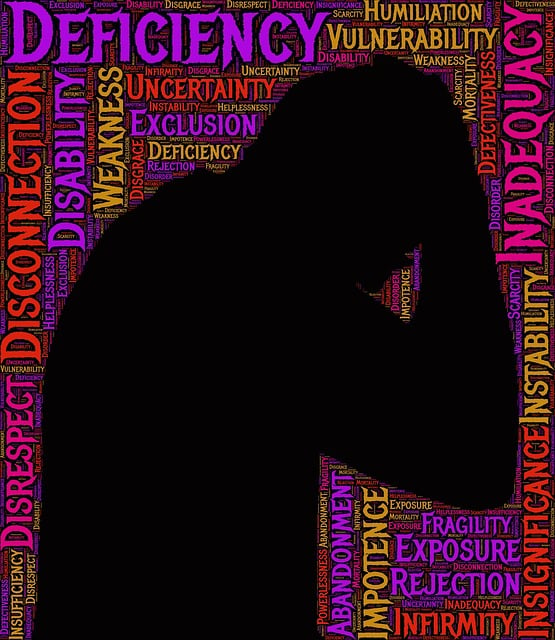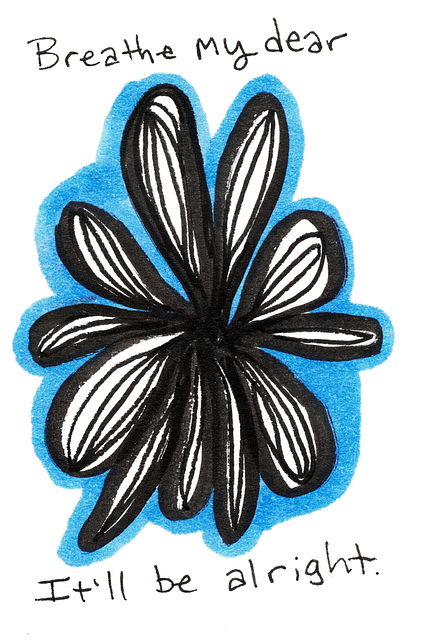Arvada Conduct Disorder Therapy leverages the RFM framework (Recovery, Flexibility, Mastery) and evidence-based methods like exposure therapy and cognitive-behavioral techniques to build resilience in clients managing emotional and behavioral challenges. This approach, complemented by compassion cultivation, crisis intervention, and trauma support services, enhances emotional well-being and equips individuals with long-lasting coping strategies. By focusing on behavior modification, self-regulation, and stress management, the therapy promotes positive changes in thinking patterns and decision-making, ultimately improving outcomes for those facing conduct disorders.
- Understanding RFM and its Role in Resilience Building
- Exercises to Enhance Resilience in Individuals with Conduct Disorder
- The Impact of Arvada Conduct Disorder Therapy Techniques
Understanding RFM and its Role in Resilience Building

Resilience is a critical component of emotional well-being, enabling individuals to navigate life’s challenges with strength and adaptability. This is where RFM (Recovery, Flexibility, and Mastery) comes into play as a powerful framework for building resilience. RFM offers a structured approach to enhancing an individual’s ability to cope with stress, trauma, or even conditions like Arvada conduct disorder therapy. By focusing on these three key aspects, individuals can develop the skills necessary to manage crises and maintain emotional balance.
Recovery involves learning to stabilize emotions and regain a sense of control during difficult times. Flexibility equips people with the ability to adapt their thinking and behavior in response to changing circumstances. Mastery teaches valuable problem-solving skills and encourages a growth mindset, fostering a sense of self-efficacy. These concepts are supported by compassion cultivation practices, crisis intervention guidance, and emotional well-being promotion techniques, all of which contribute to an individual’s overall resilience.
Exercises to Enhance Resilience in Individuals with Conduct Disorder

Building resilience is a critical aspect of therapy for individuals with Conduct Disorder, who often face significant challenges in managing their emotions and behaviors. Arvada Conduct Disorder Therapy offers tailored exercises aimed at enhancing coping mechanisms and fostering adaptability. These strategies help clients navigate difficult situations more effectively, reducing the impact of adverse events.
One effective approach involves exposure therapy, where individuals gradually confront triggers associated with their past traumas, allowing them to develop healthier responses. Additionally, cognitive-behavioral techniques teach self-soothing skills and promote positive self-talk, which are essential tools in managing intense emotions. Trauma Support Services play a vital role in this process by providing specialized care, ensuring clients receive comprehensive support throughout their journey towards resilience. By incorporating these evidence-based methods, Arvada Conduct Disorder Therapy not only addresses current challenges but also equips individuals with long-lasting coping strategies to prevent burnout and promote overall mental well-being.
The Impact of Arvada Conduct Disorder Therapy Techniques

Arvada Conduct Disorder Therapy offers innovative techniques that significantly impact individuals dealing with conduct disorders and related challenges. These therapies focus on identifying and modifying problematic behaviors, providing a structured framework to enhance self-regulation and emotional intelligence. By combining behavioral interventions with cognitive strategies, the approach targets the root causes of conduct issues, fostering positive changes in thinking patterns and decision-making processes.
One of its key strengths lies in teaching effective stress management skills, which are crucial for individuals prone to impulsive behaviors. Through various exercises and mindfulness practices, participants learn to recognize and manage their emotions, thereby reducing reactive actions. Additionally, public awareness campaigns can be developed alongside these therapy techniques to educate communities about conduct disorders, promoting early intervention and preventing depression, a common comorbidity.









